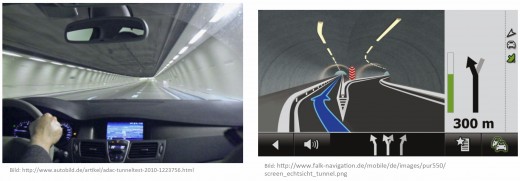
假设你开车进入隧道,GPS信号丢失,现在我们要确定汽车在隧道内的位置。汽车的绝对速度可以通过车轮转速计算得到,汽车朝向可以通过yaw rate sensor(A yaw-rate sensor is a gyroscopic device that measures a vehicle’s angular velocity around its vertical axis. )得到,因此可以获得X轴和Y轴速度分量Vx,Vy
首先确定状态变量,恒速度模型中取状态变量为汽车位置和速度:
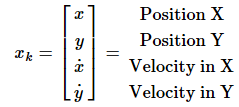
根据运动学定律(The basic idea of any motion models is that a mass cannot move arbitrarily due to inertia):
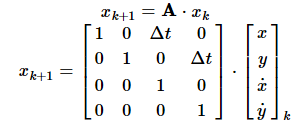
由于GPS信号丢失,不能直接测量汽车位置,则观测模型为:

卡尔曼滤波步骤如下图所示:
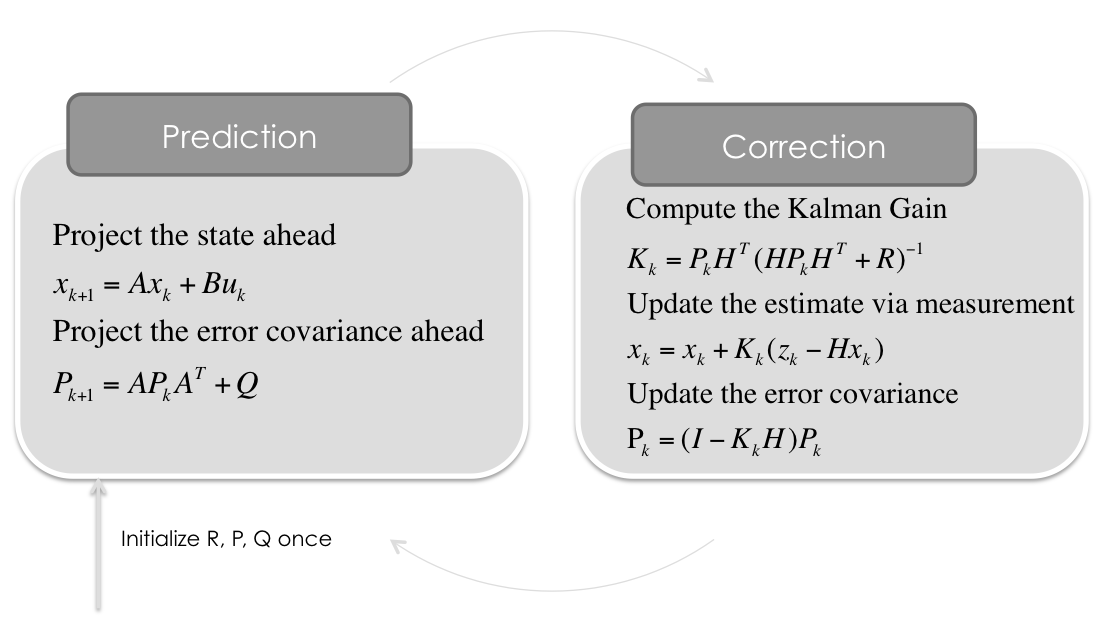
1 # -*- coding: utf-8 -*- 2 import numpy as np 3 import matplotlib.pyplot as plt 4 5 # Initial State x0 6 x = np.matrix([[0.0, 0.0, 0.0, 0.0]]).T 7 8 # Initial Uncertainty P0 9 P = np.diag([1000.0, 1000.0, 1000.0, 1000.0]) 10 11 dt = 0.1 # Time Step between Filter Steps 12 13 # Dynamic Matrix A 14 A = np.matrix([[1.0, 0.0, dt, 0.0], 15 [0.0, 1.0, 0.0, dt], 16 [0.0, 0.0, 1.0, 0.0], 17 [0.0, 0.0, 0.0, 1.0]]) 18 19 # Measurement Matrix 20 # We directly measure the velocity vx and vy 21 H = np.matrix([[0.0, 0.0, 1.0, 0.0], 22 [0.0, 0.0, 0.0, 1.0]]) 23 24 # Measurement Noise Covariance 25 ra = 10.0**2 26 R = np.matrix([[ra, 0.0], 27 [0.0, ra]]) 28 29 # Process Noise Covariance 30 # The Position of the car can be influenced by a force (e.g. wind), which leads 31 # to an acceleration disturbance (noise). This process noise has to be modeled 32 # with the process noise covariance matrix Q. 33 sv = 8.8 34 G = np.matrix([[0.5*dt**2], 35 [0.5*dt**2], 36 [dt], 37 [dt]]) 38 Q = G*G.T*sv**2 39 40 I = np.eye(4) 41 42 # Measurement 43 m = 200 # 200个测量点 44 vx= 20 # in X 45 vy= 10 # in Y 46 mx = np.array(vx+np.random.randn(m)) 47 my = np.array(vy+np.random.randn(m)) 48 measurements = np.vstack((mx,my)) 49 50 # Preallocation for Plotting 51 xt = [] 52 yt = [] 53 54 55 # Kalman Filter 56 for n in range(len(measurements[0])): 57 58 # Time Update (Prediction) 59 # ======================== 60 # Project the state ahead 61 x = A*x 62 63 # Project the error covariance ahead 64 P = A*P*A.T + Q 65 66 67 # Measurement Update (Correction) 68 # =============================== 69 # Compute the Kalman Gain 70 S = H*P*H.T + R 71 K = (P*H.T) * np.linalg.pinv(S) 72 73 # Update the estimate via z 74 Z = measurements[:,n].reshape(2,1) 75 y = Z - (H*x) # Innovation or Residual 76 x = x + (K*y) 77 78 # Update the error covariance 79 P = (I - (K*H))*P 80 81 82 # Save states for Plotting 83 xt.append(float(x[0])) 84 yt.append(float(x[1])) 85 86 87 # State Estimate: Position (x,y) 88 fig = plt.figure(figsize=(16,16)) 89 plt.scatter(xt,yt, s=20, label='State', c='k') 90 plt.scatter(xt[0],yt[0], s=100, label='Start', c='g') 91 plt.scatter(xt[-1],yt[-1], s=100, label='Goal', c='r') 92 93 plt.xlabel('X') 94 plt.ylabel('Y') 95 plt.title('Position') 96 plt.legend(loc='best') 97 plt.axis('equal') 98 plt.show()
汽车在隧道中的估计位置如下图:
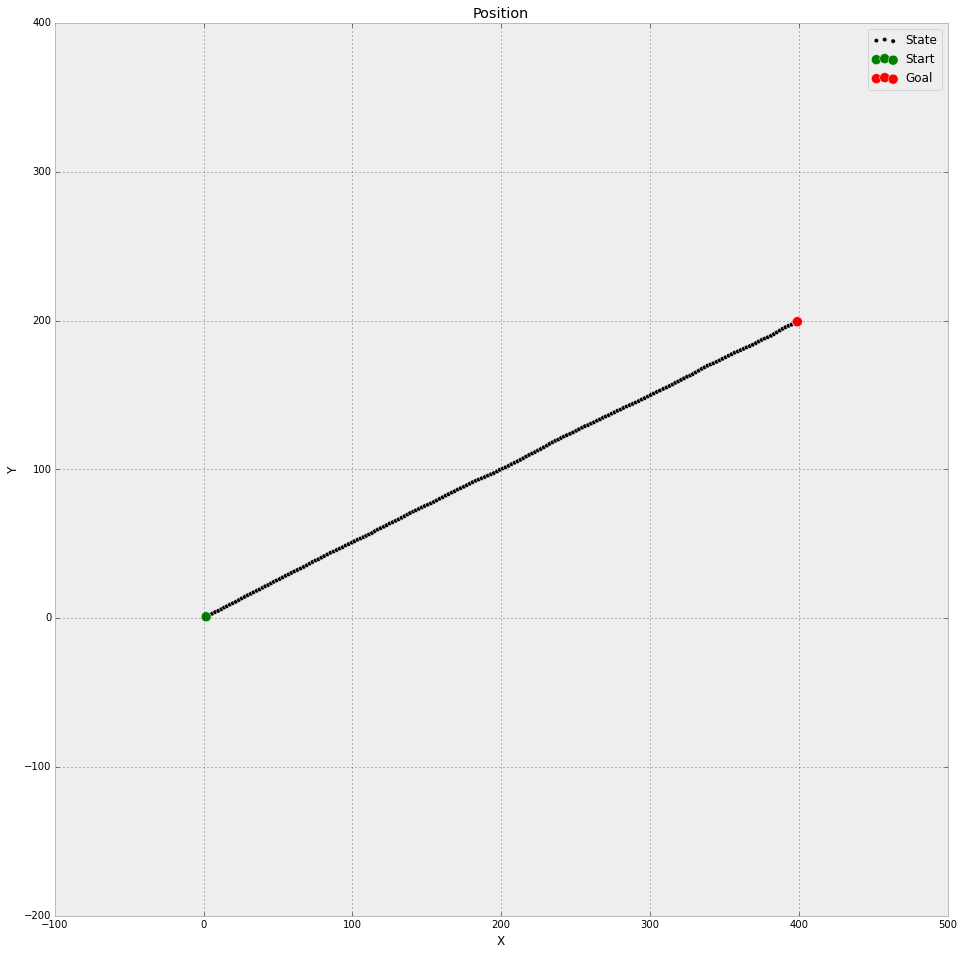
参考


